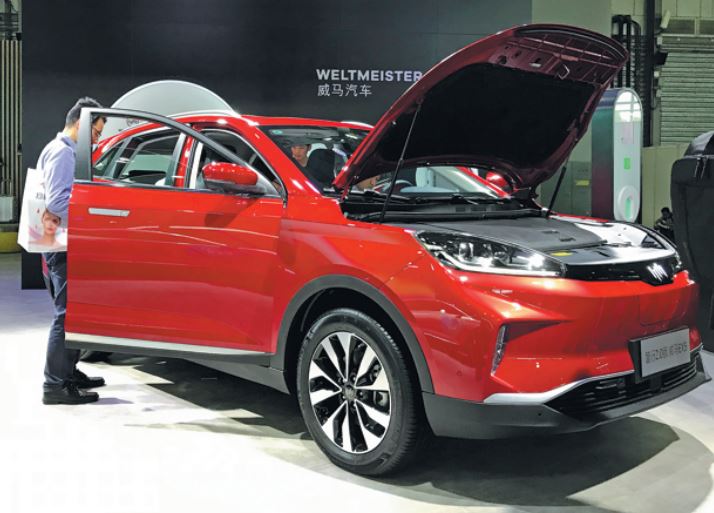China ramps up installation of charging poles to meet demand


Xiang Ji, a senior executive at Star Charge, the country's No 2 charging infrastructure operator, told website D1EV that one reason for the growth in number of poles involved the rising number of electric vehicles on the country's roads and the increase in the number of new models in the market.
Some 60 cities including Shenzhen in Guangdong province and Beijing are introducing electric vehicles into their taxi fleets. China's ride-hailing company Didi Chuxing has around 600,000 electric vehicles registered at its platform.
Taxi drivers and ride-sharing service providers are charging pole operators' largest group of customers, not private car owners that can charge vehicles in their garages.
Xiang said the authorities' shift of subsidies from purchasing electric vehicles to building charging infrastructure in 2019 has bolstered confidence as well. Last week, Tgood, China's largest charging pole operator, announced it finished financing up to 1.35 billion yuan to be spent on research and development.
Headquartered in Qingdao, Shandong province, the company runs over 260,000 public charging terminals.
Roland Berger said the charging facilities will continue to grow. The company estimated that the number of public and private charging poles in China would reach 7 million by the end of 2023.
Analysts say the improved charging network will help boost China's new energy vehicle market as authorities are expected to stop subsidies on electric car sales by the end of this year.
Following the first annual dip in 2019, China's new energy vehicle market is falling sharply in the first two months this year.
But experts blame the slowdown primarily on the ongoing coronavirus outbreak.
The country's largest new energy vehicle maker, BYD, sold 9,936 electric cars and plug-in hybrids in the first two months, down 77 percent from the same period last year.
But analysts said the situation will take a turn for the better when the epidemic is curbed.
Fang at Roland Berger said China's new energy vehicle market will continue to keep a decent growth rate as global carmakers speed up their transition toward electrification.
"By 2025, sales of new energy vehicles will account for 20 percent of the country's total new car sales," he said.




































